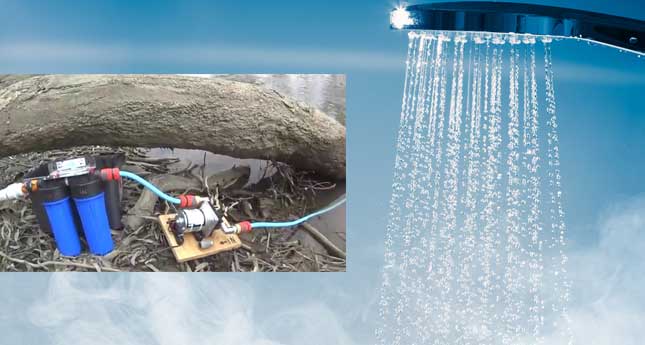Last Updated on May 23, 2023
Water is necessary for survival and essential to living a healthy lifestyle. Unfortunately, contaminated water and inadequate filtration are associated with disease transmission, including cholera, diarrhea, dysentery, hepatitis A, typhoid, and polio.
When camping near a river, water filtration is imperative. Filtration of river water can save you from disease and other health problems caused by unsafe levels of germs or chemicals in the water you consume each day.
Therefore, we should have a basic understanding of how to filter river water for showering and other uses. There are many different methods of filtering water that work well with different types of water, such as sediment, chlorine, bacteria, etc.
Throughout this article, we will discuss various methods for filtering water and how to use them most effectively.
What is Water Filtering?
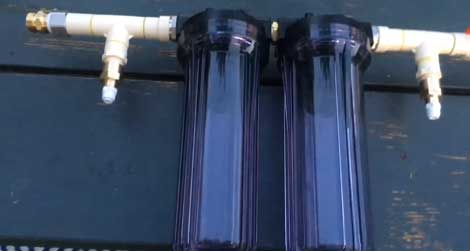
Filtration of water is a process by which contaminants are removed from a liquid, typically before consumption, and for other purposes such as providing potable water.
Filtration systems depend on the desired effect, and it can be done using either household items or specialized commercial equipment.
The most common form of purifying water is to remove suspended solids (to protect against microbial growth) and particulates through sedimentation or filtration.
Another application removes chemical substances that may affect the water’s taste, color, or odor, typically with activated carbon filters.
Why is Filtering River Water Important?
There are many reasons why purifying river water is essential. One of the most important reasons is that it can help prevent you from getting sick.
Another reason why purifying lake water is essential is that it can help improve the taste and water quality of the water. If you are camping near a river, it is crucial to filter the water before using it for drinking, cooking, or showering.
Finally, filtering river water is vital because it can help protect the environment. Contaminated water can harm aquatic life and contaminate groundwater supplies.
How to Filter River Water for Showering – Useful Methods
There are many ways to filter river water for showering, cooking, and other purposes. In this section, we will discuss some of the most useful methods for filtering river water:
Method 1: Use a Sediment Filter
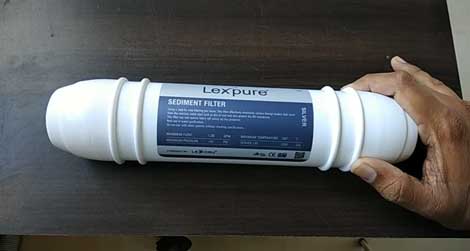
A sediment filter is a simple and effective way to remove suspended solids and particulates from river water. A sediment filter is typically a cone-shaped plastic or metal container with a fine screen at the bottom.
The top of the cone is open, and the hard water flows through the screen and into the container. The suspended solids settle at the bottom of the container and are removed when the filter is cleaned. A sediment shower filter should be cleaned after every use.
Method 2: Use a Bleach Solution
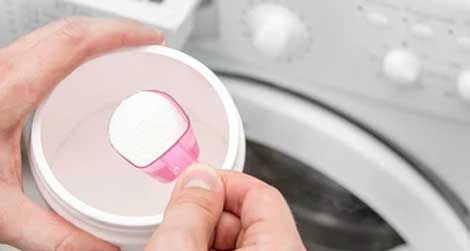
Another helpful method for cleaning river water is to use a bleach solution. Bleach is an effective way of killing most bacteria, and it is inexpensive, but keep in mind that bleach does not remove chemical contaminants or reduce turbidity.
To make the bleach solution:
- Mix one-part household liquid bleach with ten parts tap water.
- If you are camping near a filthy river where the water is muddy, increase the amount of bleach accordingly.
- After adding the bleach to the water, mix it well and let it sit for about 30 minutes.
To use this method for purifying lake water:
Pour the mixture through a premade hole in a coffee purifier or an unbleached paper towel layered on top of a funnel. You can also use a bandana or a clean cloth instead of a coffee filter or paper towel.
Method 3: Use a Water Filter Pitcher
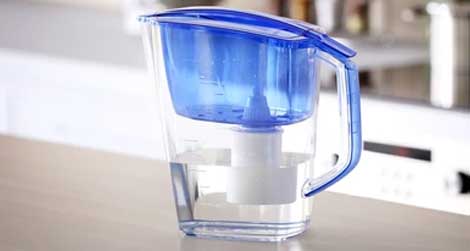
If you have room in your RV, you can use water filter pitchers to filter river water for showering and cooking purposes effectively.
Water filter pitchers fill the reservoir with water and insert a disposable filter cartridge. After closing the lid, you can submerge the reservoir in water or pour water over it to remove contaminants before using the filtered water for cooking or showering.
Method 4: Make your Water Filter System
Another way to filter lake water is to make your water filters. You can utilize coffee filters, paper towels, or cotton clothes.
Pump water through a premade hole in a coffee filter or an unbleached paper towel layered on top of a funnel to make the filter. You can also use a bandana or a clean cloth instead of a coffee filter or paper towel.
Method 5: Solar Water Purification
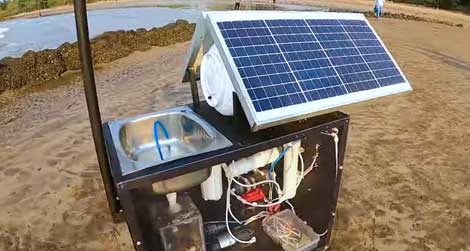
If you are camping near a filthy river where the water is muddy, you can use solar water purification to clean the river water for showering.
To make solar water filtration work, you will need clear plastic sheeting or plexiglass panels large enough to cover your water tank. You can also use a large piece of clear plastic food wrap or bags from a supermarket produce section.
Method 6: Using Natural Filter Media
Another valuable method for decontaminating river water is to use natural filter media, such as sand and gravel.
It requires a large container, and you should place about three pounds of sand or pebbles at the bottom of the container. Let the water sit in the container for five minutes then pour it out.
After allowing the water to settle, you can use a sponge or cloth to wipe off dirt and other contaminants that have settled to the bottom of the container. The final result should be very clear water suitable for showering and various purposes.
How to Use Each Method Most Effectively?
Each of the six methods described above can be used to purify lake water for showering and cooking purposes. However, some ways are more effective than others, such as:
- Sediment filter: These filters remove most pollutants and turbidity in the water that passes through them.
- Bleach solution: Bleach is effective at killing germs, and it can be added to tap water before purifying with a coffee filter, paper towel, bandana, or cotton cloth.
- Water filter pitcher: This method uses premade holes in a coffee filter or paper towel to remove contaminants.
- Solar water purification: This method uses plastic film or sheeting to trap dirt and other debris that settles in the bottom of a container.
- Natural filter media: Sand, gravel, and other biological filter media work well to remove turbidity and sediments from shower water.
When you purify river water for showering purposes, you should use a sediment water filtration system, which is most effective for your situation.
However, you can also use multiple methods to effectively remove as much sediment and debris as possible from the water.
How to Filter River Water for Drinking Water?
You can also treat river water for consumption purposes. Many of the same methods described above for filtering river or lake water can also be used to make water safe for drinking water.
However, you can add a few extra steps, such as:
- Boiling: This is one of the most effective ways to make water safe for drinking fresh water.
- Chemical Treatment: You can use chlorine or iodine to kill microbes in water.
- Survival Straws: Some survival straws are designed to remove 99.99 percent of contaminants, including germs and viruses.
- Small Water Filter: You can attach a small water filter to your drinking water container or bladder for easy filterings, such as Doulton ceramic filter.
- Drinking-Water Sterilization: If you only need to sterilize water, such as for emergency use after a disaster, many options can be used.
- Disinfecting Tablets: You can also use water disinfecting tablets that can be added to a bladder or bottle and used as needed.
- Survival Bottled Water: Many survival water bottles on the market can purify up to 16 ounces of river or lake water each minute.
Tips for Choosing Which Type of Filtration System

When choosing filtration systems for filtering river water, there are a few factors you will need to consider. Some of the most important factors include:
- The Amount of Water You Need to Filter: You will need a more extensive filtering method to purify a large quantity of water.
- The Type of Contaminants in the Water: If there are many types of pollutants, you will need a more sophisticated filtration system.
- The Ease of Use: Some purification techniques are easier to use than others.
- The Size and Type of Container: You will need to consider the size and type of container you will be using with your filtration method.
Final Words
Whether you are looking to purify river or lake water for human consumption purposes or want it clean enough only to shower with, several effective methods can be used. Choosing the most appropriate method will depend on your particular requirements.
Therefore, RVers should learn how to filter river water for showering, which may prove to be very helpful in the future. After reading this article, we hope that you now have the knowledge you need.

